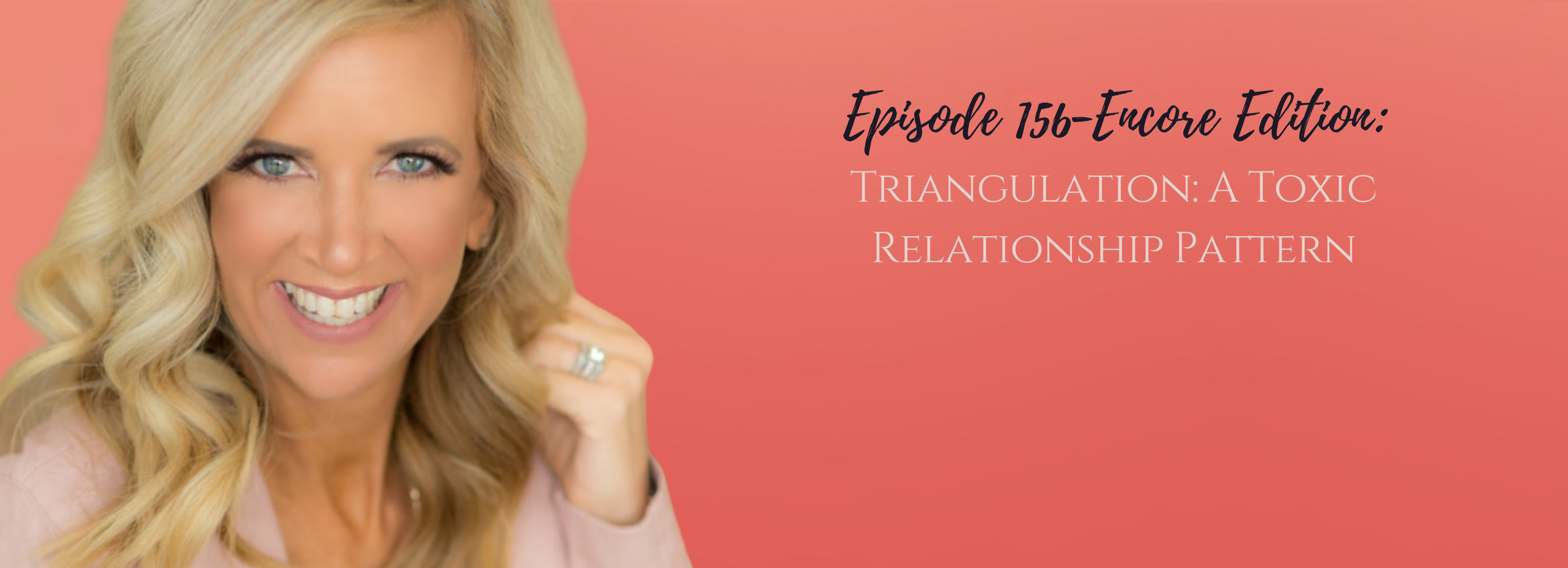
Encore Edition: Triangulation: A Toxic Relationship Pattern| 4.13.2022
In this encore episode, Kristen talks about triangulation, how it affects your relationships, and how to stop this toxic pattern.
You'll Learn
- Toxic triangulation and its impact on relationships
- The effect of triangulation on children
- Examples of triangulation
- How to stop toxic triangulation
Resources
For counseling services near Indianapolis, IN, visit www.pathwaystohealingcounseling.com.
Subscribe and Get a free 5-day journal at www.kristendboice.com/freeresources to begin closing the chapter on what doesn’t serve you and open the door to the real you.
Subscribe to the Close the Chapter YouTube Channel
This information is being provided to you for educational and informational purposes only. It is being provided to you to educate you about ideas on stress management and as a self-help tool for your own use. It is not psychotherapy/counseling in any form.
[fusebox_transcript]